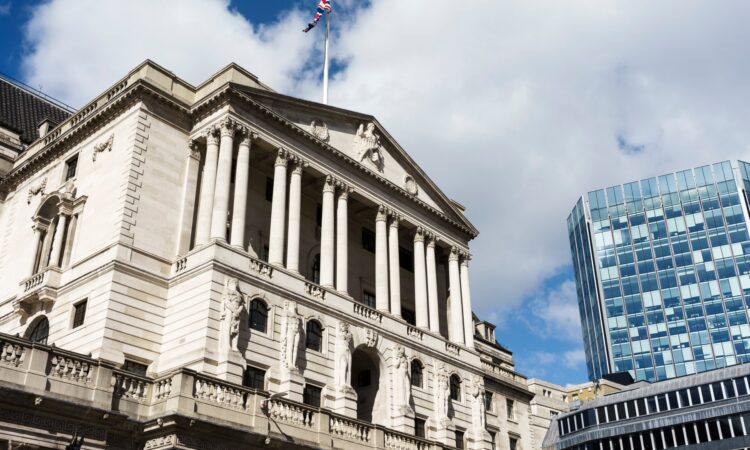
HOUSE buyers were hit with payment delays today after a global system went down.
The Bank of England (BoE) said it was experiencing problems with CHAPS – the Clearing House Automated Payment System – earlier this afternoon.
CHAPS payments are usually large bank transfers which you have to pay a fee for, for example a home buyer would use it when transferring their deposit.
CHAPS typically processes daily volumes of 200,000 transactions worth £360 billion.
The BoE said the payment issue had been triggered by a global error at Society for Worldwide Interbank Financial Telecommunication (SWIFT), which The Sun approached for comment.
The global payments issue was not caused by a hack.
Retail payment systems including cash points and bank transfers were not affected.
A statement from the BoE has since confirmed the payment issue has been resolved.
It said: “We are pleased to confirm that the third party supplier has restored service following their earlier issues, and CHAPS payments are settling as normal.
“We expect that all payments received by the Bank today will be settled by the end of the day.
“If you are concerned about a CHAPS payment you plan to make or receive today, please contact your bank, or other payment service provider.”
Prior to the outage being resolved, experts said the payments issues could have impacted house buyers far and wide.
Chris Barry, director at property law firm Thomas Legal, said: “Whilst many completions are preset and happen earlier in the day, some will still happen between the issue being announced and the cut off of 4pm.
“For many, this has just made an already stressful day even more stressful.
“Most contracts have a 12 or 1pm hard time embedded so if the payment is being made now they are technically in breach of contract.”
The BoE’s website says several thousands financial institutions use CHAPS to make payments.
Some of the banks that use the payments system include Santander, Bank of Scotland, HSBC, TSB and Virgin Money.
Andrew Montlake, managing director at mortgage broker Coreco, said today’s issue had the potential to be a “nightmare scenario” for home buyers.
“For any buyers looking to complete, it is worth a call to their conveyancers to make sure all is in order.”
SJ Mortgages added lenders usually send house purchase funds to solicitors the day before completion, with Friday the busiest day for transactions meaning the outage “couldn’t have happened on a worse day”.
The payments issue today comes after the BoE suffered a similar outage in August last year.
The central bank’s Real-Time Gross Settlement (RTGS) service and CHAPS system suffered a “technical issue”, although issues were reportedly resolved within 24 hours.
The RTGS system also suffered an outage in 2014 which was estimated to have delayed the sales of around 700 properties.
How to get the best deal on your mortgage
IF you’re looking for a traditional type of mortgage, getting the best rates depends entirely on what’s available at any given time.
There are several ways to land the best deal.
Usually the larger the deposit you have the lower the rate you can get.
If you’re remortgaging and your loan-to-value ratio (LTV) has changed, you’ll get access to better rates than before.
Your LTV will go down if your outstanding mortgage is lower and/or your home’s value is higher.
A change to your credit score or a better salary could also help you access better rates.
And if you’re nearing the end of a fixed deal soon it’s worth looking for new deals now.
You can lock in current deals sometimes up to six months before your current deal ends.
Leaving a fixed deal early will usually come with an early exit fee, so you want to avoid this extra cost.
But depending on the cost and how much you could save by switching versus sticking, it could be worth paying to leave the deal – but compare the costs first.
To find the best deal use a mortgage comparison tool to see what’s available.
You can also go to a mortgage broker who can compare a much larger range of deals for you.
Some will charge an extra fee but there are plenty who give advice for free and get paid only on commission from the lender.
You’ll also need to factor in fees for the mortgage, though some have no fees at all.
You can add the fee – sometimes more than £1,000 – to the cost of the mortgage, but be aware that means you’ll pay interest on it and so will cost more in the long term.
You can use a mortgage calculator to see how much you could borrow.
Remember you’ll have to pass the lender’s strict eligibility criteria too, which will include affordability checks and looking at your credit file.
You may also need to provide documents such as utility bills, proof of benefits, your last three month’s payslips, passports and bank statements.
Do you have a money problem that needs sorting? Get in touch by emailing money-sm@news.co.uk.
Plus, you can join our Sun Money Chats and Tips Facebook group to share your tips and stories





